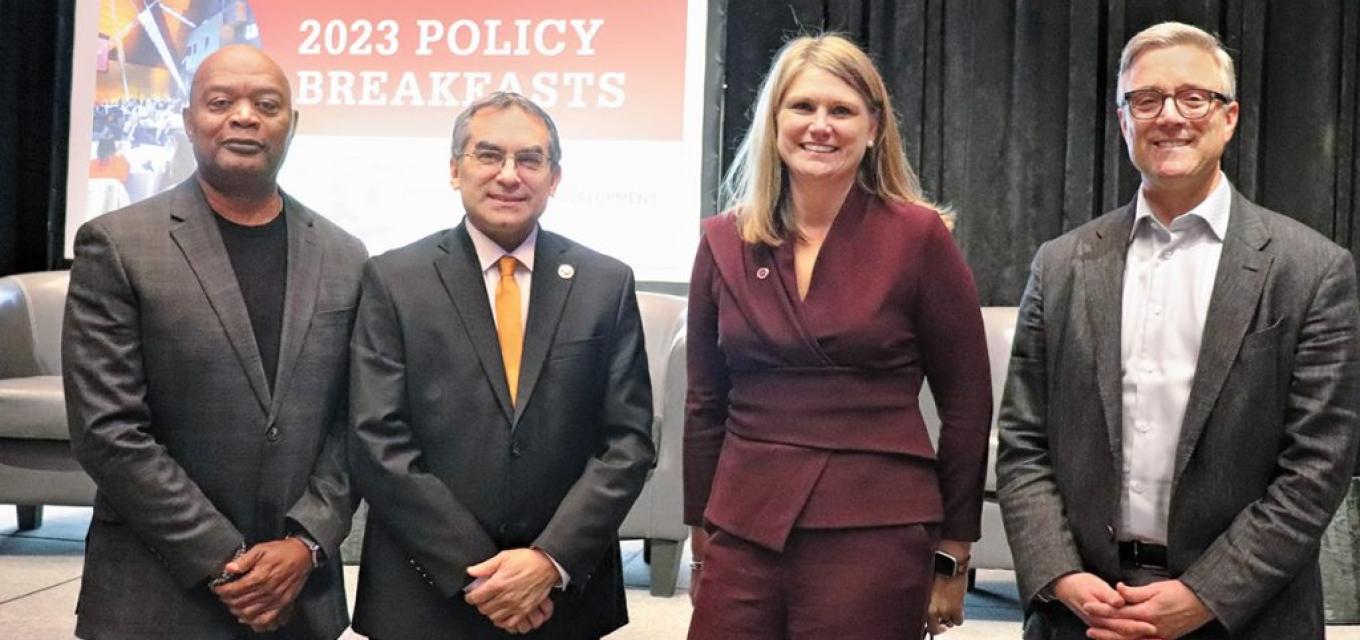News

Policy breakfast: accountability system for MN schools
In October, CEHD hosted more than 120 educational leaders and policy makers for a Policy Breakfast at the Historic Chateau Theatre in Rochester, Minnesota. University of Minnesota Chancellor Lori J. Carroll welcomed attendees to Rochester and the event.
Katie Pekel, CEHD’s Executive Director of Educational Leadership, moderated a panel of experts, including CEHD Dean Michael C. Rodriguez, Minnesota Department of Education (MDE) Commissioner Willie Jett, and Superintendent of Rochester Public Schools Kent Pekel.
The panel discussed the current accountability system for schools in Minnesota, how it compares to other states’ systems, and what the future of accountability could look like as the state continues to strive for equity, justice, and improvement.
In Minnesota, the Minnesota Comprehensive Assessments (MCAs) measure the effectiveness of schools and districts relative to the state’s academic standards. However, individual scores are also reported to students and their families.
“We should stop reporting individual student scores and not send them home. The MCAs are not designed to provide diagnostically relevant measurement per student,” argued Dean Rodriguez.
When asked what an ideal state accountability system would look like, Rodriguez suggested that performance assessments, while difficult to carry out reliably, could help shine a light on student thinking, uncovering the deeper learning that occurs in our schools. He said performance assessments done by teachers more readily uncover what students know and can do better than the current assessments do.
“The U.S. curriculum is a mile wide and an inch deep. I would like CEHD to attract students who are creative, critical thinkers who dig deeper. If you don’t dig deeper, you don’t make progress and innovate,” he said. Superintendent Pekel proposed that Minnesota should also look at what’s going well.
“We should not only be identifying the schools at the bottom of the MCA distribution but also the schools that are making the most improvement,” he said. “This would help us shine a light on the high performers and learn from them.”
The panelists also discussed the READ (Reading to Ensure Academic Development) Act, a $70 million investment by the state of Minnesota to provide teachers and instructional support staff with resources and professional development to teach reading based on evidence-based reading instruction approved by MDE.
“Being able to read well is a conduit for academic success. The READ Act helps students throughout their academic journey,” said MDE Commissioner Jett.
-SARAH JERGENSON